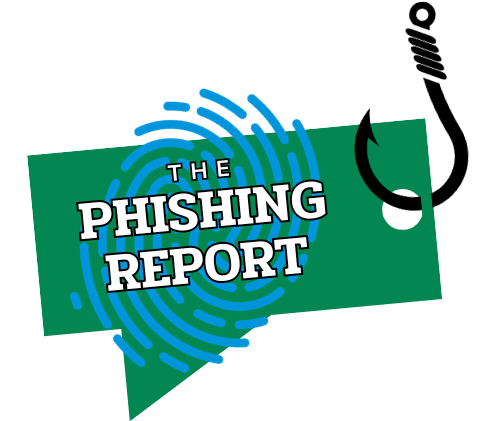When it comes to securing your small business, think of your network as the digital fortress protecting your valuable assets. But, is your fortress truly impenetrable?
As a small business owner, you may have implemented some security measures, but are they enough to ward off today’s sophisticated cyber threats?
Stay tuned to discover key strategies and solutions that can help fortify your network against malicious intruders and safeguard your business operations.
Key Takeaways
- Implement robust network security measures to safeguard sensitive data.
- Prioritize employee training on phishing awareness and security protocols.
- Regularly update security software and conduct security audits.
- Utilize encryption, strong passwords, and multi-factor authentication for enhanced protection.
Importance of Small Business Network Security
Ensuring robust network security is paramount for small businesses to safeguard sensitive data and maintain operational continuity. One fundamental aspect of network security is providing thorough employee training. Educating your staff on best practices, such as recognizing phishing attempts or avoiding suspicious links, can greatly reduce the risk of cyber threats. Regular training sessions ensure that employees are up to date with the latest security protocols, making them an essential part of your defense against potential breaches.
In addition to employee training, implementing strong passwords is a fundamental step in securing your network. Encourage employees to create complex passwords that include a combination of letters, numbers, and special characters. Advise against using easily guessable information like birthdays or pet names. Passwords should be changed regularly, ideally every 60 to 90 days, to minimize the likelihood of unauthorized access.
Common Network Security Threats
You must be aware of the common network security threats that can jeopardize your small business, such as data breaches and phishing attacks.
Data breaches occur when unauthorized individuals gain access to sensitive information, putting your business and customers at risk.
On the other hand, phishing attacks involve deceptive emails or messages aimed at tricking you into divulging confidential data or installing malware on your network.
Data Breaches
Data breaches pose a significant threat to the security of small businesses’ networks, often leading to devastating consequences if not properly addressed. Implementing robust data protection measures and providing cybersecurity training for your employees are critical steps in safeguarding your network. Here are some key considerations to enhance your defense against data breaches:
- Regularly update security software to patch vulnerabilities.
- Encrypt sensitive data to prevent unauthorized access.
- Implement multi-factor authentication for an added layer of security.
- Conduct regular security audits to identify and address weaknesses.
- Establish a response plan in case of a data breach to mitigate its impact swiftly.
Phishing Attacks
Phishing attacks represent a prevalent threat to small businesses’ network security, requiring vigilant measures to mitigate potential risks. Email scams are a common form of phishing, where cybercriminals impersonate legitimate entities to deceive employees into revealing sensitive information or clicking malicious links.
Social engineering tactics are often employed in phishing attacks to manipulate individuals into divulging confidential data. Once a phishing attempt is successful, it can lead to devastating consequences such as data breaches or the deployment of ransomware, causing financial losses and reputational damage.
To combat phishing attacks, small businesses must prioritize cybersecurity awareness training for employees, implement email filtering systems, and regularly update security protocols to stay ahead of evolving threats.
Essential Network Security Measures
When implementing essential network security measures for your small business, it’s important to start by establishing a robust firewall system. A firewall acts as a barrier between your internal network and external threats, filtering incoming and outgoing traffic to prevent unauthorized access.
In addition to a firewall, there are several other important steps you should take to enhance your network security:
- Implement Network Encryption: Encrypting your network traffic using protocols like SSL/TLS guarantees that data exchanged between devices is secure and protected from eavesdropping.
- Enforce Strong Password Management: Require employees to use complex passwords and change them regularly. Consider implementing multi-factor authentication for an added layer of protection.
- Regularly Update Software and Firmware: Keep all network devices, including routers, switches, and servers, up to date with the latest security patches to address vulnerabilities.
- Conduct Regular Security Audits: Perform routine audits to identify weaknesses in your network security posture and address them promptly.
- Employee Training and Awareness: Educate your staff about best practices for cybersecurity, such as avoiding suspicious links and emails, to mitigate the risk of social engineering attacks.
Choosing the Right Firewall Solution
Selecting the appropriate firewall solution for your small business requires a thorough evaluation of your network infrastructure and security needs. When contemplating firewall features, look for solutions that offer advanced security functionalities such as intrusion detection and prevention systems, deep packet inspection, and application-layer filtering. These features help in safeguarding your network from various cyber threats by monitoring and controlling incoming and outgoing network traffic.
In addition to basic firewall capabilities, it’s essential to choose a solution that integrates network monitoring software. This software allows you to track network activities, detect anomalies, and respond promptly to potential security breaches. By combining firewall features with network monitoring tools, you can enhance your small business’s overall security posture and ensure proactive threat management.
When evaluating firewall options, prioritize solutions that provide centralized management capabilities, automated updates, and scalability to accommodate your business’s growth. It’s also vital to contemplate the vendor’s reputation, technical support availability, and compatibility with your existing network infrastructure.
Implementing Secure Remote Access
To enhance the security of your small business network, consider implementing secure remote access protocols that allow authorized users to connect to the network securely from external locations. Secure VPNs and Multi-factor Authentication (MFA) are essential components for ensuring that remote access is both convenient for users and secure for your business.
- Secure VPNs: Utilize Virtual Private Networks to create encrypted connections for remote users, ensuring data confidentiality and integrity.
- Multi-factor Authentication: Implement MFA to add an extra layer of security by requiring users to provide multiple forms of verification before accessing the network.
- Access Control Policies: Define strict policies that govern who can access the network remotely and under what conditions.
- Regular Auditing: Conduct routine audits of remote access logs to monitor for any suspicious activities or unauthorized access attempts.
- Thorough Training: Provide thorough training to remote users on best practices for secure remote access, including password hygiene and recognizing phishing attempts.
Network Security Best Practices
Consider incorporating robust network security measures to safeguard your small business from potential cyber threats and unauthorized access.
Conducting regular network security audits is essential to identify vulnerabilities and make sure that your network infrastructure is up to date with the latest security patches. By performing these audits, you can proactively address any weaknesses before they’re exploited by malicious actors.
Another important practice is network segmentation, which involves dividing your network into smaller subnetworks to enhance security. This approach limits the scope of a potential breach, making it harder for attackers to move laterally within your network. Implementing strong access controls and firewall rules between segments adds an extra layer of defense against unauthorized access attempts.
Moreover, enforcing strict password policies, implementing multi-factor authentication, and regularly updating your network devices’ firmware are fundamental security practices. Educating your employees on cybersecurity best practices and conducting regular training sessions can also help mitigate risks associated with human error.
Frequently Asked Questions
How Can Small Businesses Ensure Their Network Security Measures Are Compliant With Industry Regulations?
To guarantee your small business’s network security measures comply with industry regulations, address compliance challenges by implementing robust data encryption and access controls. By doing so, you can effectively mitigate risks associated with non-compliance.
Data encryption helps safeguard sensitive information, while access controls limit unauthorized access, enhancing overall security.
Regularly review and update these measures to stay compliant and protect your business from potential security breaches.
What Steps Should Small Businesses Take to Protect Against Insider Threats to Their Network Security?
To safeguard against insider threats, small businesses must prioritize employee training on security protocols.
Implement robust access controls to limit unauthorized network access.
Encrypt sensitive data to prevent unauthorized viewing or tampering.
Develop a detailed incident response plan to swiftly address any breaches.
How Can Small Businesses Effectively Monitor and Respond to Potential Security Breaches in Real-Time?
To effectively monitor for security breaches in real-time, deploy intrusion detection systems and security information and event management tools. These systems can alert you to potential threats as they occur, enabling swift incident response.
Implementing robust incident response protocols guarantees that you can contain and mitigate any breaches promptly, minimizing the impact on your network.
What Are Some Common Mistakes That Small Businesses Make When Implementing Network Security Measures?
When implementing network security measures, small businesses often overlook common pitfalls that can leave them vulnerable to cyber threats.
To avoid such mistakes, it’s essential to follow best practices like conducting regular security audits, implementing strong access controls, and providing employee training on cybersecurity awareness.
How Can Small Businesses Balance the Need for Strong Network Security With the Desire for Seamless Remote Access for Employees?
To balance security and productivity, it is essential to manage remote access efficiently. This can be achieved by implementing secure VPNs for encrypted connections and utilizing multi-factor authentication to enhance login security. Regularly updating software patches is crucial to prevent vulnerabilities, while monitoring network traffic for unusual activity can help detect potential threats. Establishing clear remote access policies for employees and conducting regular security training sessions are also important steps in maintaining a secure network environment.
Final Thoughts
Overall, securing your small business network is vital to protect your valuable data and maintain business continuity.
By implementing the right network security measures, such as a robust firewall solution and secure remote access protocols, you can safeguard against common threats and guarantee the integrity of your network.
Remember, the stakes are high in today’s digital landscape, so don’t underestimate the importance of strong network security practices.
Your business’s future success depends on it.

